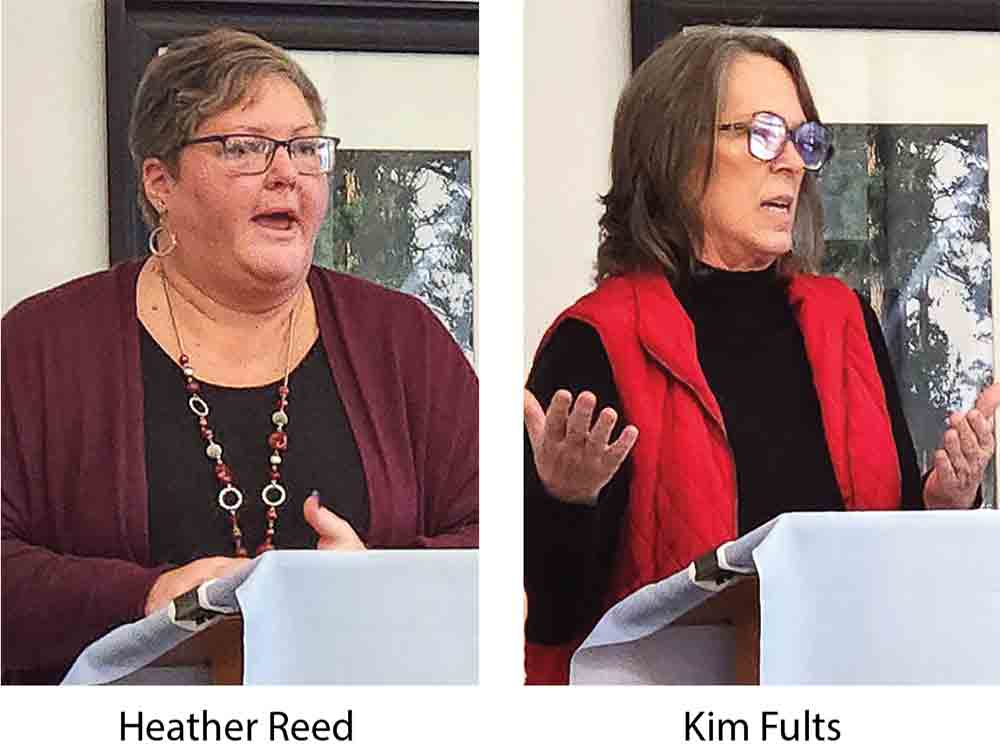Fraud specialists discuss prevention, protection

By Emily Banks Wooten
This email address is being protected from spambots. You need JavaScript enabled to view it.
Heather Brooks and Kim Fults from the fraud prevention department of First National Bank of Livingston presented the program for the Livingston-Polk County Chamber of Commerce’s final Lunch & Learn of the year held Nov. 28.
“Fraud is not just a big city problem. It’s an everywhere problem. No matter where you bank, your bank will have a website and a mobile app. You need to check it daily,” Heather Reed said, informing the group that one of the latest scams is called check-washing. “They’re stealing them out of mailboxes and from the post office and washing the ‘payable to’ portion.
“You can help prevent check washing by being proactive. Set up mobile apps and online banking alerts,” Reed said.
Kim Fults addressed debit card fraud, commenting that two of the biggest are ‘free’ and ‘chance to win’ claims, where an item is allegedly free and the consumer only has to pay shipping but the fine print (which most people do not read) indicates the consumer is agreeing to a subscription. Similar scams are various sweepstakes, often offering chances to win an iPhone, she said.
Go to a reputable site to check it out because they (the scammers) are always going to sign you up for more,” Fults said, also mentioning the gift card scam where someone purports to offer some type of service or reward to you, but you must first purchase a number of gift cards and provide the card numbers to them.
Related Articles
Another scam often perpetrated is convincing people to be money mules who unknowingly transfer illegally obtained funds.
“A scammer likes to have different layers. We want to be careful. We want to warn our parents, our grandparents, our teenage kids.”
Fults said other scams are romance scams and elder financial exploitation, which is the act or process of taking advantage of an elderly person through manipulation, coercion or deception for financial or personal gain.
“There are three ways to prevent this – educate yourself, recognize and spot the warning signs. It’s up to all of us to report it so we can prosecute. It is our responsibility to help. Scams and elder exploitation can be reported to the Federal Trade Commission. Freeze your card and watch your account,” Fults said.
“Gone are the days of getting your statement at the end of the month and checking it. You have to check your statement daily,” she said, adding that FNB posts little tips every Friday on all social media platforms.
“Pay your bills electronically. Try not to write checks period. Set mobile alerts. Share information with your family, your friends, your siblings. Set up mobile banking,” Fults recommended.
You are a guest
or post as a guest
Be the first to comment.

